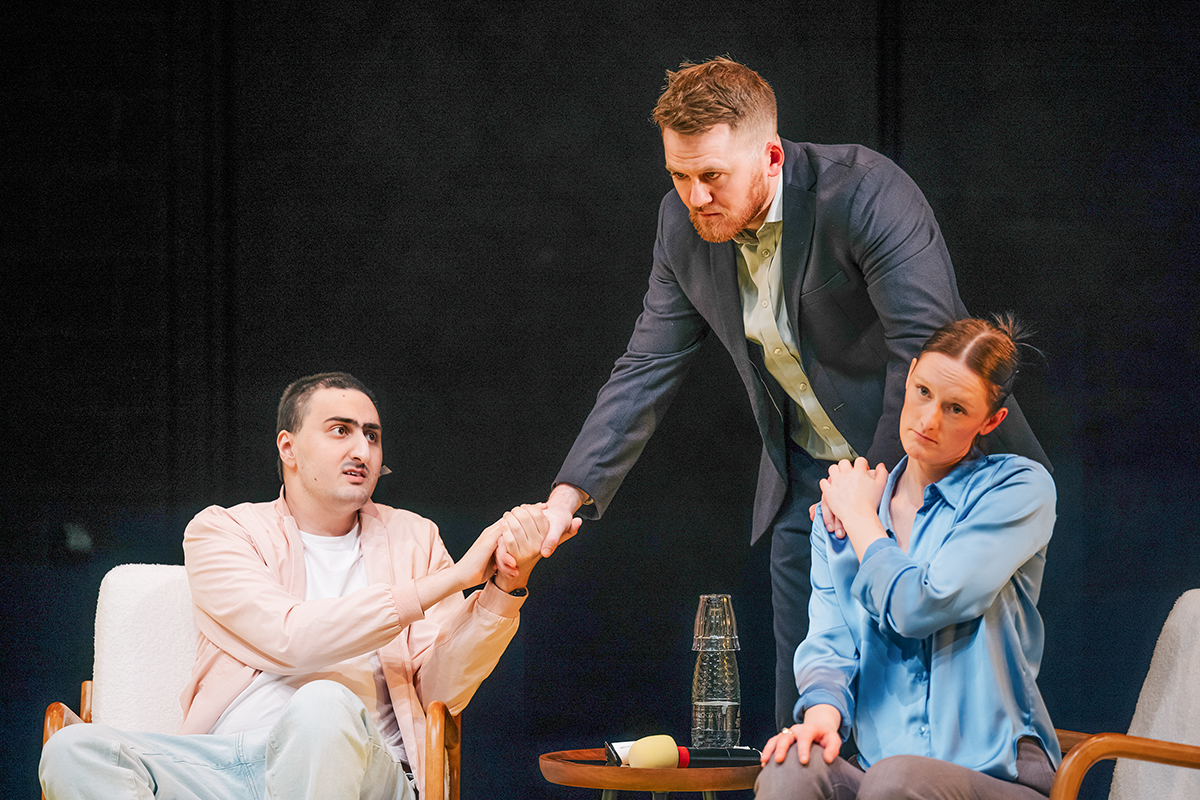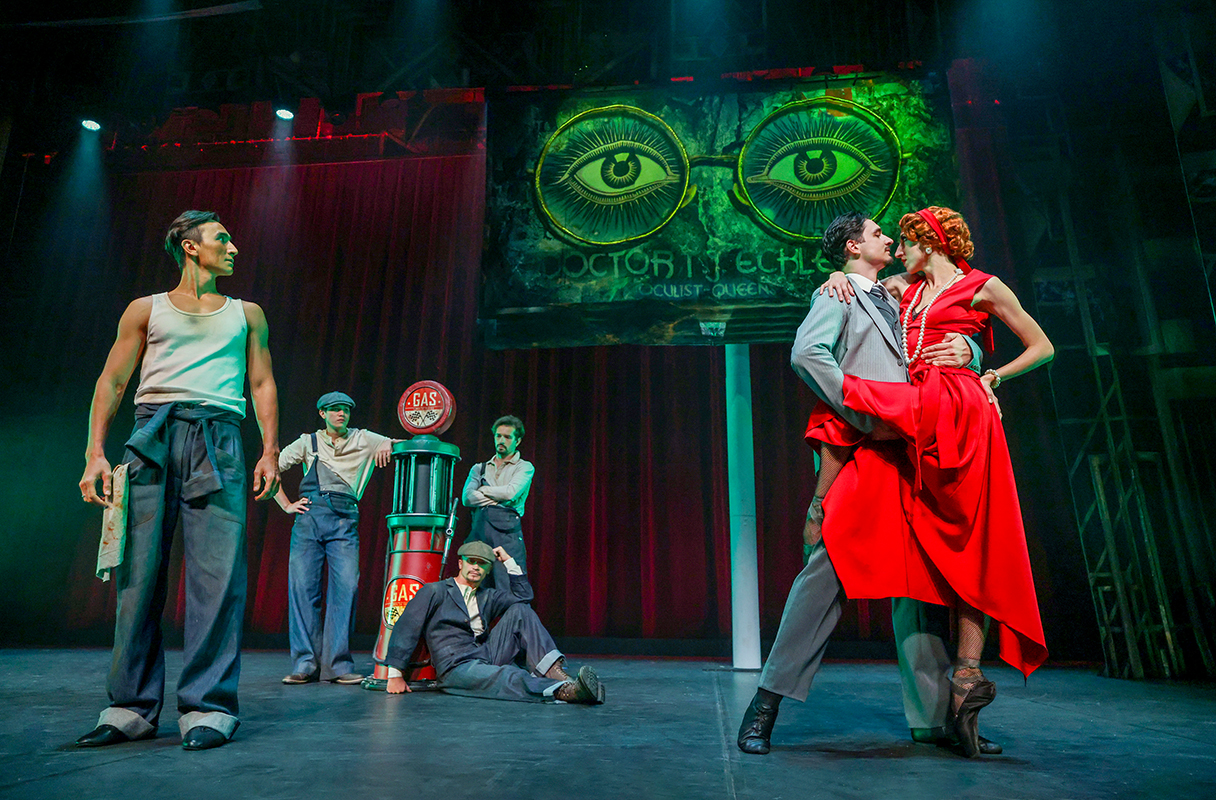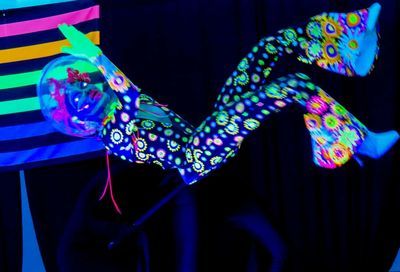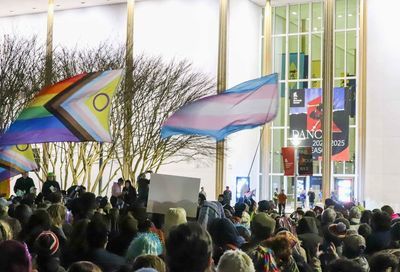Dana Tai Soon Burgess Gets Personal
Choreographer Dana Tai Soon Burgess brings three deeply personal works to the Woolly Mammoth stage next weekend.

Dorothy was right: There’s no place like home. Forging a new community partnership with Woolly Mammoth Theater, the Dana Tai Soon Burgess Dance Company will soon have a chance to return to Washington’s Chinatown, where the renowned troupe — now in its 32nd year — began performing.
“We have a lot of roots that go all the way back when we used to do projects like dancing on the streets there,” Burgess says. “It’s great to have a season downtown, and we’re really excited about cross-germinating the theater audience and the dance audience. I think it’s the right audience to understand these pieces because a lot of my works have a storytelling aspect to them.”
A fourth generation gay Korean American, Burgess has curated three deeply personal works, one of which has been revived and updated to reflect a contemporary and aspirational ideal.
The first dance in the three-part program entitled An Asian American Dance Journey is “Leaving Pusan.”
“It is a representation of my great-grandmother’s emotional and physical journey to leave Korea in 1903,” he says. “She was one of the first 102 Koreans to make it to America, specifically to the plantations of Oahu. This is a representation of her leaving her community and culture and the life she knew.” His great-grandmother was taken to the sugar cane and pineapple plantations and would work at the Del Monte plantation her whole life.
The second piece, “Becoming American,” centers around the true story of a former DTSBDC member Katia Norri, who was adopted by a family in New Jersey when she was three years old. Norri and her brother were found in a shopping mall in Korea, taken into foster care services, and flown to the United States by Christian services.

“It’s really about her struggles as a child to acculturate to her new family in a new country and to try to find resolution in what home would be for her,” Burgess says. “It was interesting talking to her and her adoptive mother about what that process was, because this was in the eighties when there was no specific process for adoption like this. Norri arrived here speaking only Korean and eating Korean food, so it was quite a journey. There wasn’t the same support system then that there is now.”
“Becoming American” premiered in 2011. Recently, Burgess, whose works often focus on themes of social justice, took poetic license to the dance. “In revisiting the repertoire, I often ask how we can update it and keep it relevant to the current times,” he says. So Burgess decided to make a same-sex male couple be the adoptive family. (Initially, a straight couple played these roles.)
“Envisioning what the world is now and how we create a more inclusive world is an important part of the change we wanted to make,” he says. “The Korean government still doesn’t sanction same-sex couple adoption, so for us, in making this change, part of it is looking at what the future could and should be.”
The final piece, “Hyphen,” is based on the hyphenated place between Asian and American, African and American, and Latino and American. Does the hyphen connect or disconnect from society? “There are times when we feel that it connects us to American society and other times when it feels like a blockage,” he says.
Burgess hopes the program will give audiences a better understanding of the diverse journeys that the Asian American community has within America and that they go away with a basic universal need of humanity in general to find a community. “All of the works touch upon the ideas that the individuals involved have a sense of home, a place where they are supported, that they feel understood,” he says.
Burgess, who has spent his entire life in dance, is acutely aware that being an artist in this current political moment is challenging, but believes in the healing power of it.
“Movement is a universal language and it can convey how we’re feeling on a deep emotional and visceral level,” he says. “It conveys stories across socioeconomic and language barriers. Now is the time when art is needed more than ever, and the best thing that we can do is to stay creative and to continue to make and present work that allows everyone to feel more empathetic to different voices and to be able to come together.”
An Asian American Dance Journey runs Feb. 27 through March 1 at the Woolly Mammoth Theatre Company, 641 D St. NW. Tickets are $30 to $50. Call 202-393-3939 or visit www.woollymammoth.net.
Support Metro Weekly’s Journalism
These are challenging times for news organizations. And yet it’s crucial we stay active and provide vital resources and information to both our local readers and the world. So won’t you please take a moment and consider supporting Metro Weekly with a membership? For as little as $5 a month, you can help ensure Metro Weekly magazine and MetroWeekly.com remain free, viable resources as we provide the best, most diverse, culturally-resonant LGBTQ coverage in both the D.C. region and around the world. Memberships come with exclusive perks and discounts, your own personal digital delivery of each week’s magazine (and an archive), access to our Member's Lounge when it launches this fall, and exclusive members-only items like Metro Weekly Membership Mugs and Tote Bags! Check out all our membership levels here and please join us today!

























You must be logged in to post a comment.